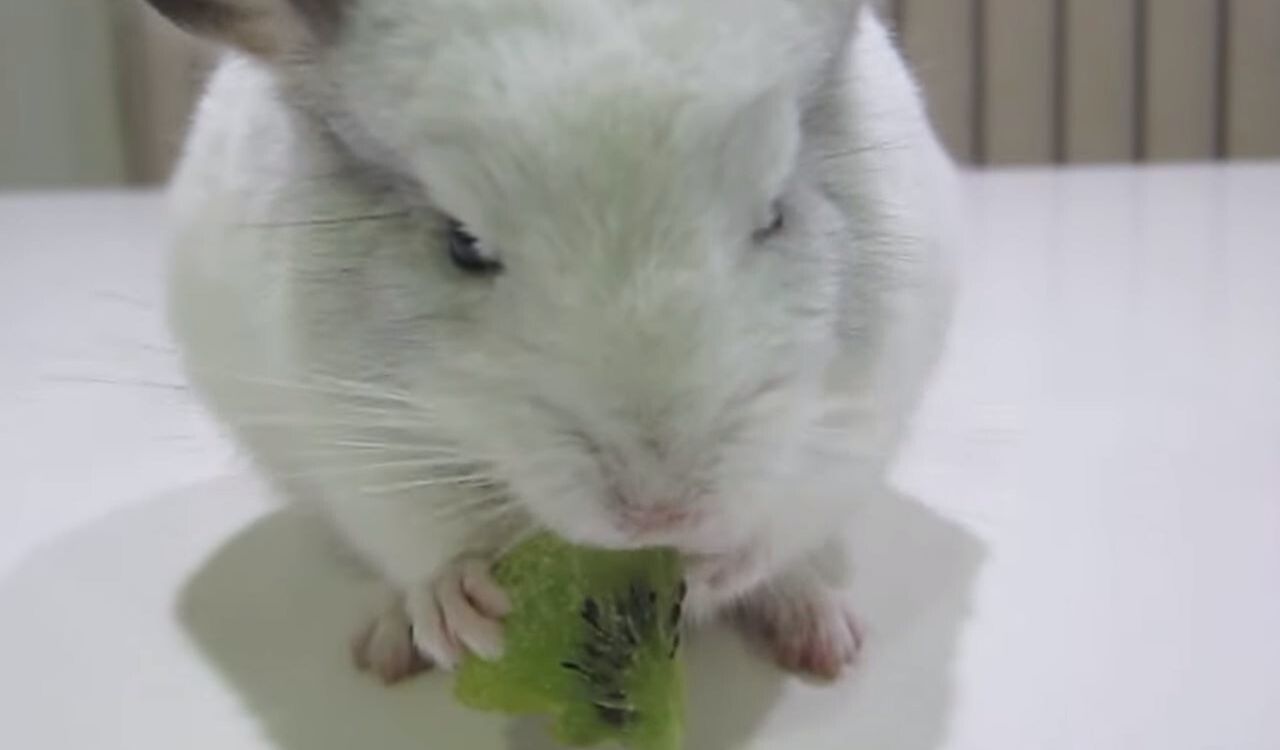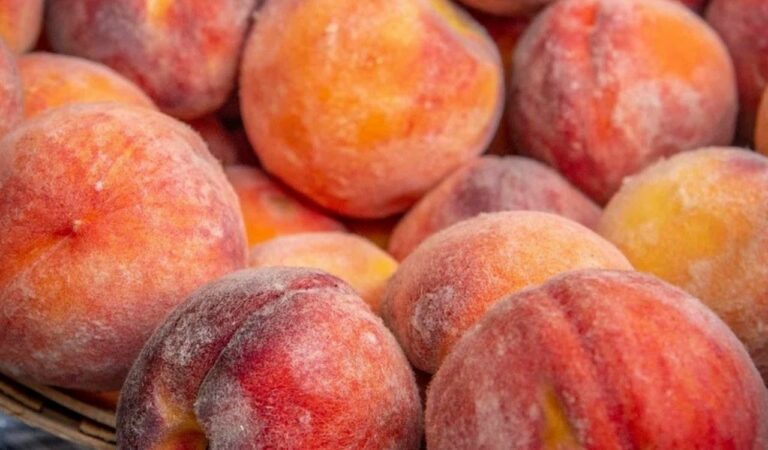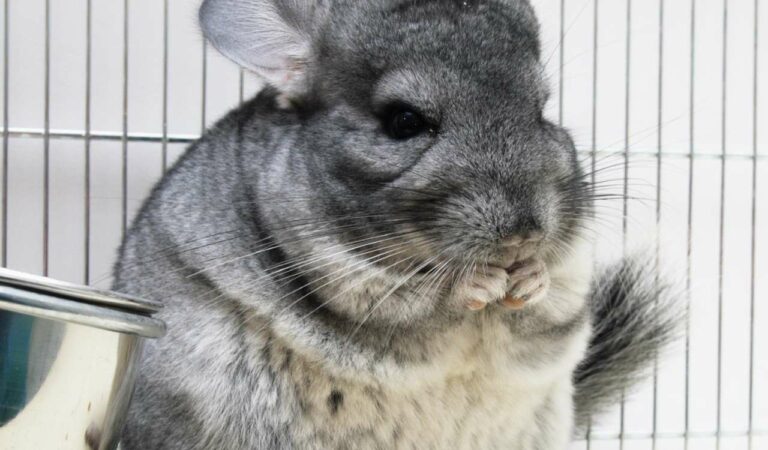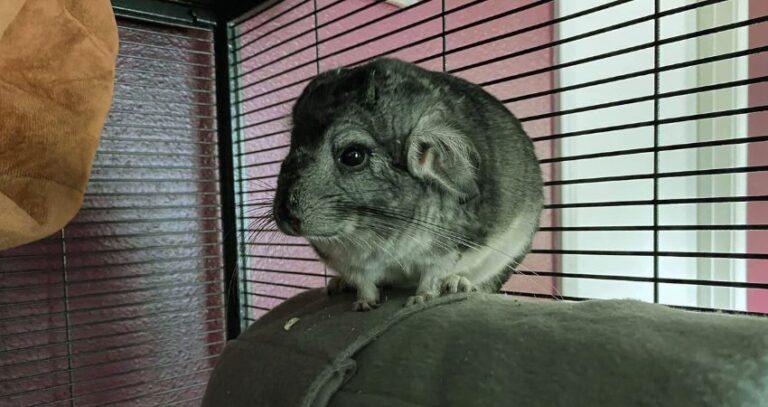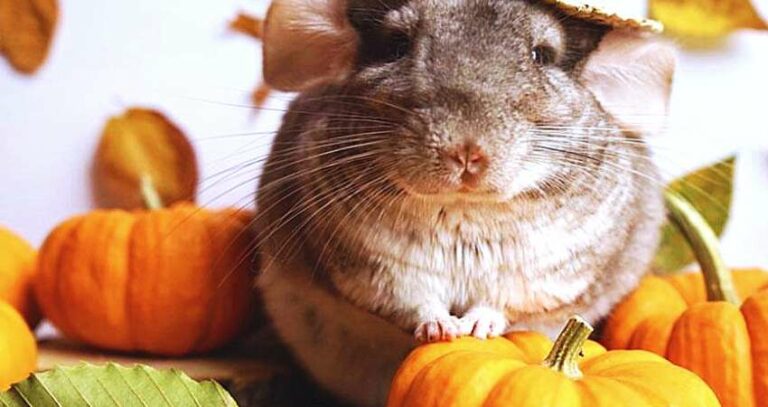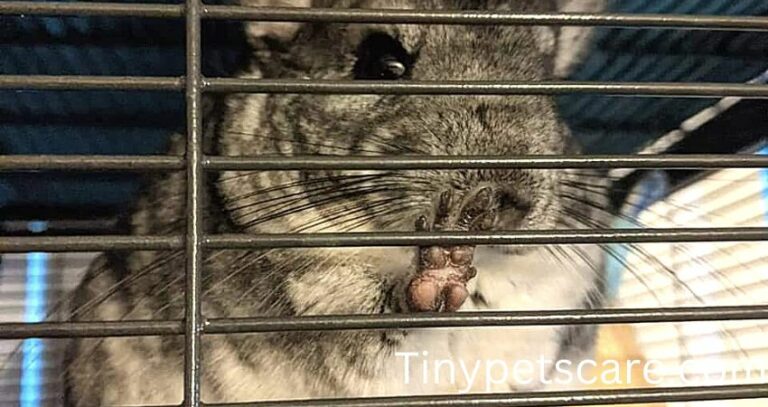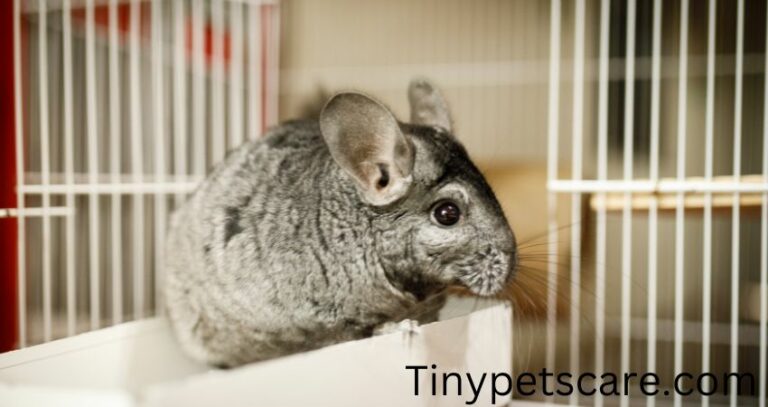Can Chinchillas Eat Kiwi? 8 Health Benefits
As a responsible chinchilla owner, you must provide your pet with a healthy and balanced diet to ensure their overall health and well-being. Chinchillas owners often want to expand their pet’s diet with new treats. One of the treats is the kiwi fruit, known for its many health benefits.
Yes, chinchillas can eat kiwis. However, kiwi should be given in moderation because this is high in fructose and is acidic. Chinchillas have sensitive digestive systems that are not adapted to handling too much sugar or acid. On the other hand, kiwi is rich in vitamins and dietary fiber.
Before feeding Kiwi to your chinchilla you need to know how to prepare them, how much is enough, and the potential risks involved.
Do Chinchillas Like Kiwi?
Yes, Chinchillas like Kiwi. Chinchillas may even prefer kiwis to other foods if given in large quantities. This causes the chinchilla to avoid eating other parts of its diet. That is why, when it comes to feeding chins kiwis, moderation is crucial.
Can Chinchillas Have Kiwi?
Yes, you can. Kiwi is a fruit rich in vitamins, dietary fiber, and antioxidants, making it a popular choice. But as mentioned before, kiwi contains a generous amount of sugar, and if overfed to chinchillas, they may develop various health issues.
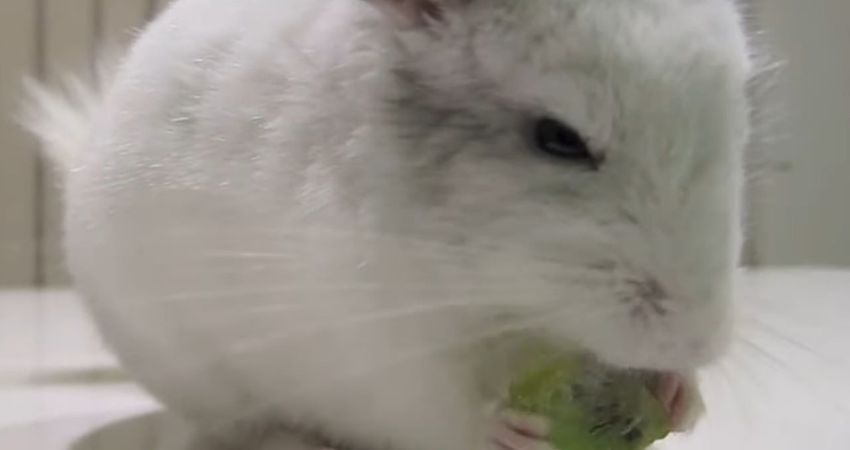
Kiwis are also considered a wet fruit, which can cause your chinchilla diarrhea. Other health issues may include diabetes, digestive issues, and obesity. The solution to this dilemma is feeding your chinchilla kiwis in moderation.
Remember, kiwis should not be a significant part of Chinchillas’ diet. Chinchillas require a diet high in fiber and low in sugar and fat. So, providing your chinchilla with a balanced diet of hay, pellets, and fresh water is important.
Health Benefits Of Eating Kiwi For Chinchillas
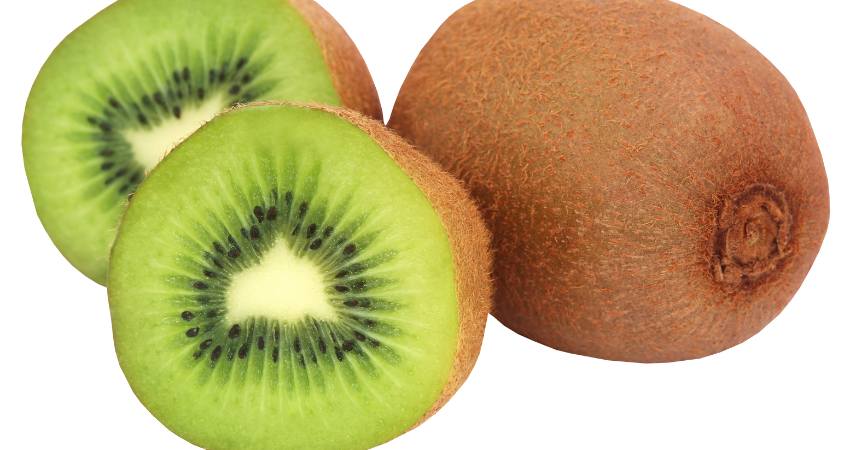
Antioxidants
Antioxidants are essential in a chinchilla’s body as they help to fight against free radicals. Free radicals, when in large quantities, can lead to cancer. The main antioxidant in kiwi is flavonoids. Also, if you have an aging chinchilla, antioxidants protect it from age-associated diseases.
Vitamin C
Chinchillas, like humans, cannot produce vitamin C and must obtain it from their diet. Vitamin C is critical in maintaining a healthy immune system, promoting wound healing, and supporting collagen production. This also aids in stress reduction.
Vitamin E
Kiwi is also high in vitamin E and polyphenols, which help protect cells and lower disease risk. Vitamin E is also responsible for the overall bone health of your chinchillas, making them strong and healthy.
Vitamin K
Vitamin K is also important for blood clotting and bone health. This Vitamin helps the body produce prothrombin, a protein that plays a vital role in blood clotting (“prevents excessive bleeding when a blood vessel is injured”). It also helps regulate calcium absorption, which is essential for the bone health of chinchillas.
Vitamin A
Kiwi is a good source of vitamin A, which is important for maintaining healthy vision, skin, and immune systems of Chinchillas. Vitamin A helps maintain the integrity of the cornea, the eye’s outermost layer and supports the production of rhodopsin, a protein that plays a vital role in vision.
Vitamin A helps regulate the growth and differentiation of skin cells, which is important for maintaining healthy skin. In addition, this is essential for properly functioning the immune system.
Potassium
Kiwi is high in potassium, necessary for proper fluid balance and muscle function. Potassium aids in regulating blood pressure, heart function, and nerve impulses.
Fibre
Chinchillas require a high-fiber diet to maintain healthy digestion and prevent digestive problems like bloating and constipation. Kiwi is a good source of dietary fiber, with one medium-sized kiwi containing approximately 3 grams of fiber.
Hydration
The high water content of kiwi fruit can help keep your chinchilla hydrated, especially if your chinchilla is prone to dehydration. In chinchillas, adequate hydration is critical for maintaining healthy digestion, body temperature, and overall well-being.
| Nutrient | Amount in 1 kiwi (100 g) |
| Water (g) | 83.9 |
| Energy (calories) | 58 kcal |
| Carbohydrates (g) | 14, including 8.2 g of sugar |
| Fiber (g) | 3 |
| Calcium (mg) | 35 |
| Magnesium (mg) | 16 |
| Phosphorus (mg) | 34 |
| Potassium (mg) | 198 |
| Copper (mg) | 0.134 |
| Vitamin C (mg) | 74.7 |
| Folate (mcg) | 26 |
| Beta carotene (mcg) | 52 |
| Vitamin E (mg) | 1.0 |
| Vitamin A (mcg) | 4 |
| Vitamin K (mcg) | 40.3 |
How Much Kiwi Should A Chinchilla Eat?
The serving size of a kiwi for a chinchilla should be small, and it should only be fed as an occasional treat. A slice of kiwi about the size of a thumb is sufficient for a chinchilla.
How Often Can A Chinchilla Eat Kiwi?
Chinchillas should not eat kiwis every day or too often. Feeding kiwis to chinchillas no more than once a week is recommended. While kiwi fruit is safe for chinchillas, it is high in sugar and can cause digestive problems if overfed.
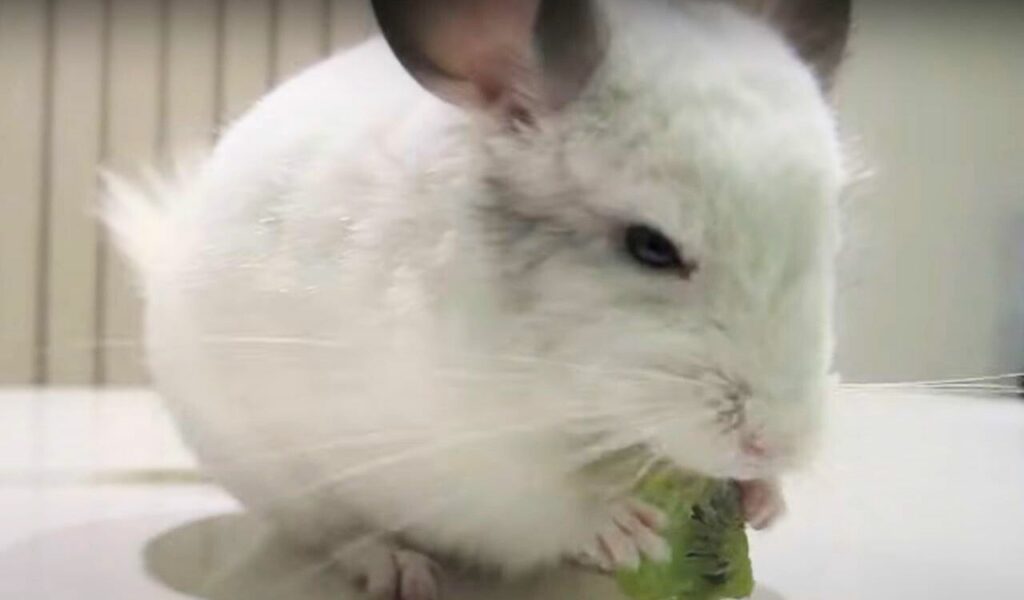
I always serve my Chinchillas a varied diet that includes hay or pellets. Fruits and occasional treats should make up no more than 10% of their diet.
How To Prepare Kiwis For Your Chinchilla?
Here are the simple process and tips on how I serve kiwis to my chinchillas.
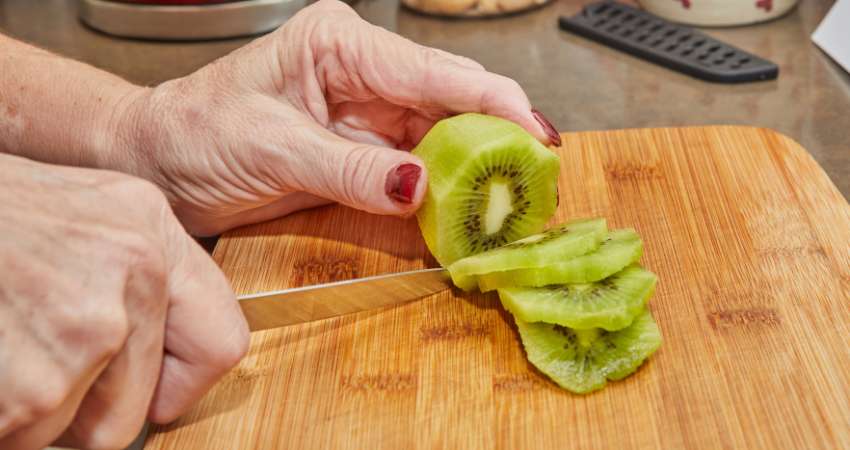
1. Wash The Kiwi
Before serving the kiwi to your chinchilla, it is important to wash it thoroughly. This will help remove any dirt or bacteria that may be present on the surface of the fruit.
2. Cut The Kiwi
Cut the kiwi into small pieces that are easy for your chinchilla to chew and swallow. As mentioned, a slice of kiwi is about the size of a thumb. This is a good serving size for a chinchilla. You can cut the kiwi into small cubes or thin slices to make eating easier for your pet.
3. Remove The Skin And Seeds
The kiwi skin can be tough for chinchillas to digest, and the seeds can be a choking hazard. So, removing both the skin and seeds before serving kiwi to your chinchilla is important.
4. Introduce The Fruit Gradually
Introducing kiwis to your chinchillas’ diet is best. But Chinchillas have sensitive digestive systems, and sudden changes in their diet can cause gastrointestinal problems.
Therefore, introducing new fruits gradually and in moderation can help your chinchilla’s digestive system adjust to the new food and avoid potential health issues. A gradual introduction can also help you identify any potential food allergies or intolerances your chinchilla may have.
5. Supervise Your Chinchilla
It is important to supervise your chinchilla while they are eating kiwi to ensure that they are not experiencing any allergic reactions. Also, if you notice any signs of digestive upset or discomfort, it is best to discontinue feeding kiwi to your pet.
Health Risks Associated With Overfeeding Kiwi For Chinchilla
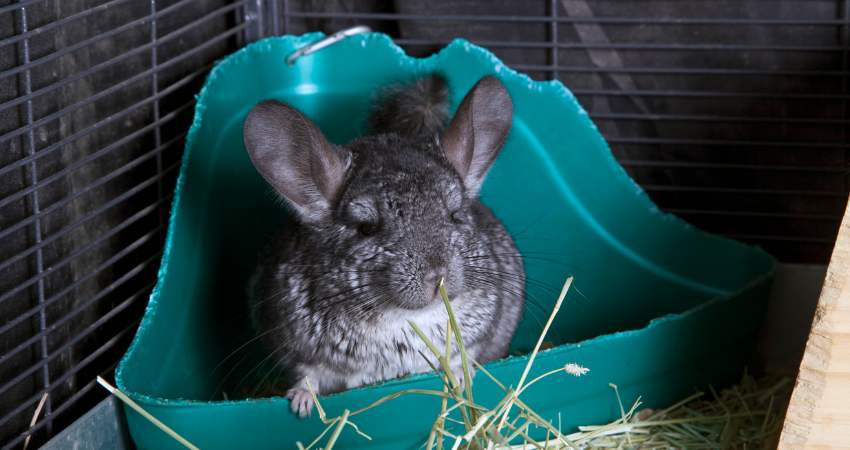
Here are some risks you may face to your chinchilla if you feed too much kiwi fruit.
Diarrhea And Digestive Upset
Chinchillas are sensitive to dietary changes. Kiwi fruit contains a lot of fiber and vitamin C, which can cause digestive problems in chinchillas if they eat too much of it., and feeding them large amounts of kiwi can cause diarrhea, bloating, and discomfort.
Obesity
Kiwi fruit is high in sugar, which can contribute to obesity in chinchillas if consumed in excess. Overfeeding kiwi can cause your chinchilla to gain weight and become overweight, leading to other health issues such as heart disease, diabetes, and joint problems.
Tooth Decay
Kiwi fruit is acidic, which can erode the enamel of your chinchilla’s teeth if consumed in large amounts. Overfeeding kiwi can lead to tooth decay of chinchilla, which can cause pain and eating difficulty.
Allergic Reactions
Some chinchillas may have an allergic reaction to kiwi fruit, which can cause symptoms such as itching, swelling, and difficulty breathing. If your chinchilla experiences any of these symptoms after eating kiwi fruit, it is best to discontinue feeding it to them and seek veterinary attention.
Choking Hazards
The seeds and skin of kiwi fruit can be a choking hazard for chinchillas. Removing the skin and seeds before feeding kiwi to your chinchilla is important to prevent potential health risks.
Bacteria
Keep peeled kiwi in a cool, dry place to avoid mold growth. Remove any remaining kiwi pieces from your chinchilla’s food dish to prevent pests from entering the cage. Bacteria and insects can both make your furry friend sick
What Are Other Alternatives To Kiwi?
If you can’t find kiwi fruit or if your chinchilla is allergic to it, there are several other fruits you can feed your chinchilla but they should be dried fruits. Here are some more safe and healthy fruits I give chinchillas to eat. Remember, like kiwi fruits, only feed these fruits in moderation.
- Apples(be sure to remove the seeds, as they contain cyanide and can be harmful to your pet)
- Apricots
- Cheerios
- Grapes
- Raisins
- Pears
- Cranberries
- Sultanas
Can chinchillas eat kiwis every day?
No, chinchillas should not eat kiwis every day. While kiwi fruit is safe for chinchillas, it is high in sugar and can cause digestive problems if overfed.
Chinchillas should instead be fed a varied diet that includes hay or pellets. Fruits and occasional treats should make up no more than 10% of their diet.
Can baby chinchillas eat kiwi?
No. Baby chinchillas should not be fed kiwi fruit or any other fruit. Baby chinchillas have delicate digestive systems that are still developing, and introducing new foods too soon can cause digestive problems and potentially harm their health.
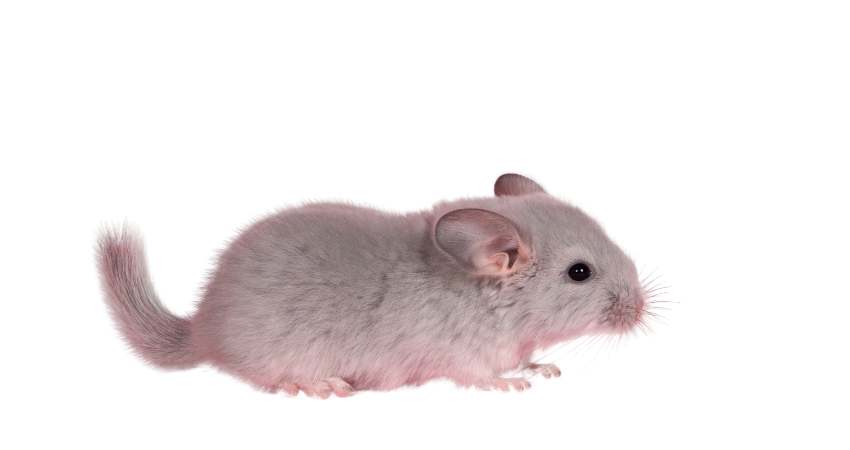
So, it is best to wait at least six months before introducing new foods into a baby chinchilla’s diet and to do so gradually and in moderation. Moreover, before making any dietary changes to a baby chinchilla, consult a veterinarian.
Can Chinchillas Eat Dried Kiwi?
No. While dried kiwi may appear to be a convenient snack option for chinchillas, they are not recommended to consume it.
Dried fruits, including dried kiwi, are typically high in sugar and preservatives, which can harm chinchillas. Furthermore, dried fruits can be difficult for chinchillas to digest and cause digestive problems.
A Few Final Words
Kiwi fruit is safe for chinchillas to eat. However, it should be given in moderation and as part of a balanced diet. Kiwis are a great source of vitamin C, fiber, and other nutrients that can provide several health benefits to chinchillas.
Overfeeding kiwi fruit or any other fruit chinchillas daily can lead to digestive issues, weight gain, and other health problems. In addition to the kiwi fruit, several other fruits and vegetables, such as pears, cranberries, and raisins, are safe and healthy for chinchillas to eat in moderation.
